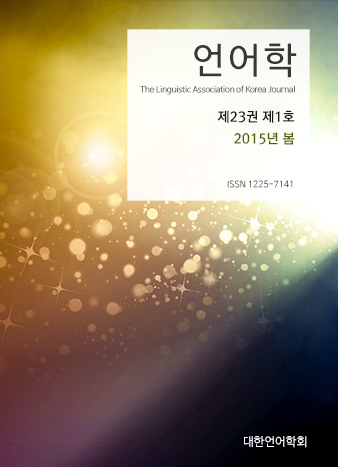대한언어학회 전자저널

Abstract
Song, Kyung-An. (2015). A Contrastive Study on the Structure of Functional Words in German, English and French. The Linguistic Association of Korea Journal, 23(1), 107-137. The purpose of this paper is to compare the structure of functional words in German, English and French. Historically the English language has mainly been influenced by the German and French languages. We might say that the English vocabulary is composed of two strata, a thin base layer of Germanic covered with a thick Romanic upper stratum. The functional words are a part of the basic vocabulary and so English functional words are expected to be basically of Germanic origin, which is proved statistically in this paper. All the pronominal words, wh-words, article words and modal auxiliaries in English are of Germanic origin. The deictic and connective words of English are also basically of Germanic origin. However, the situation of prepositions is slightly different. While the locative prepositions, which might be considered to be some of the most basic ones, are, like the other functional words mentioned, Germanic in their origin. The other prepositions are of mixed origins. They are partly Germanic and partly Romanic. In morphological structure the German functional words show the most conservative character; they are mainly simple structure words of Germanic origin which have been grammaticalized through the languages long history. In contrast the French functional words frequently have a complex structure which developed from Latin in relatively recent times. English now shows a mixed nature of the other two languages; it basically retains the conservative character of the Germanic language, but it has also many complex functional words which seem to have developed more recently.
Keywords
# 기능어(functional word) # 어휘구조(word structure) # 전치사(prepo- sition) # 접속사(conjunction) # 대명사(pronoun) # 직시어(deixis) # 지시사(deter- miner) # 양상조동사(modal auxiliary)